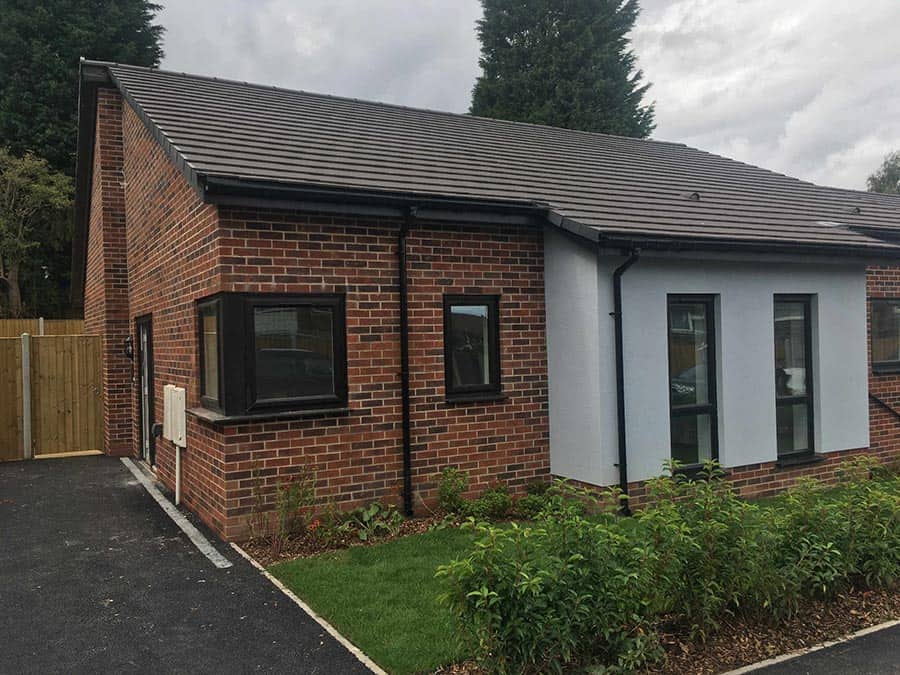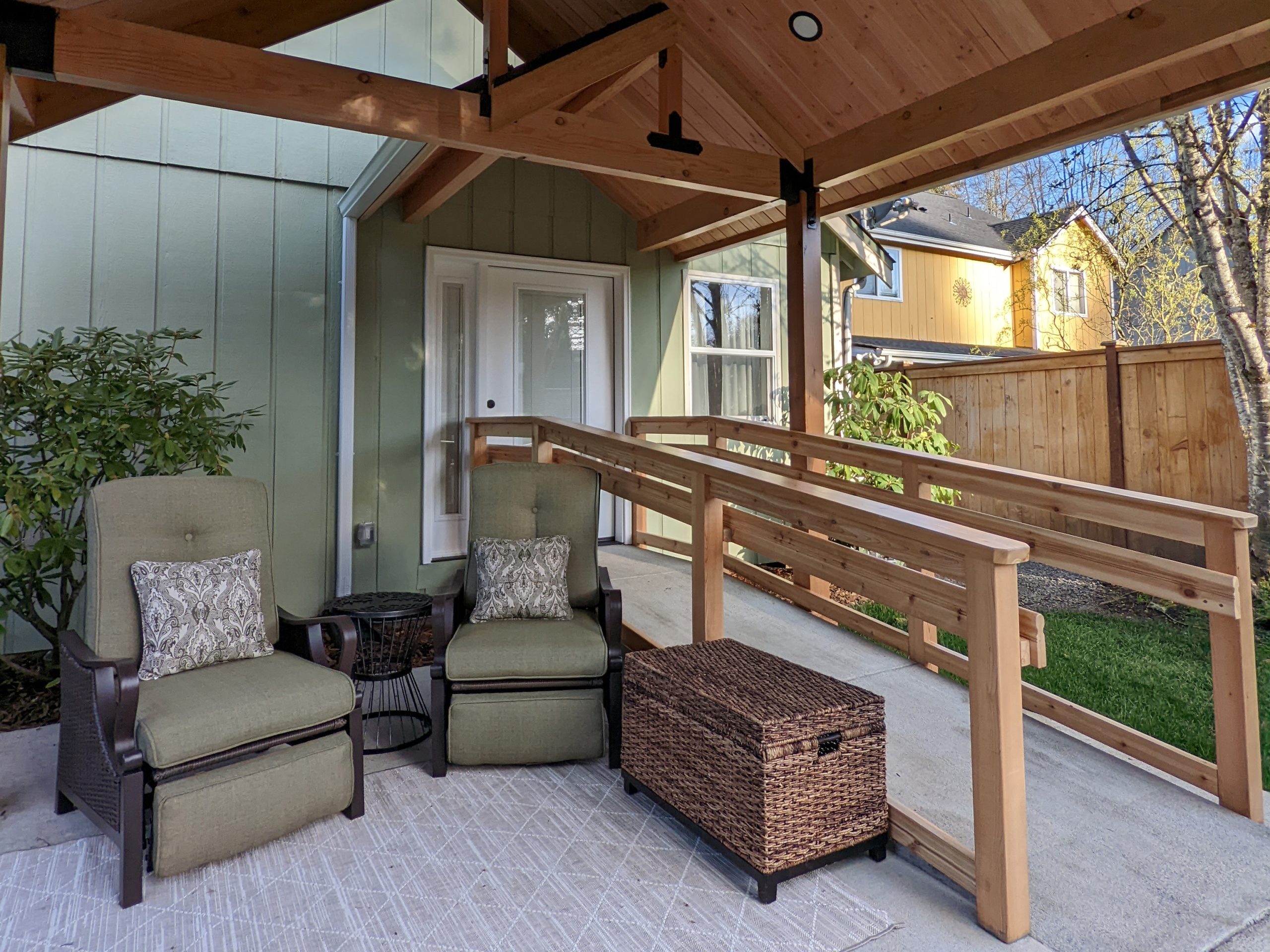How to Manage Construction Delays

Construction projects, whether small home renovations or large-scale builds, are rarely immune to delays. These setbacks can lead to increased costs, frustration, and extended timelines. Delays can disrupt living arrangements, strain relationships with contractors, and impact overall project feasibility. However, with careful planning, proactive management, and the right tools, such as Loomin, construction delays can be minimised and effectively handled.
Understanding the causes of construction delays is the first step in managing them effectively. Once homeowners and project managers identify potential bottlenecks, they can implement strategies to keep projects on track. Whether through clear communication, contingency planning, or leveraging digital platforms for efficient project management, taking proactive steps can ensure a smoother construction experience. This guide explores common causes of delays and provides actionable strategies to prevent and manage them efficiently.
Common Causes of Construction Delays
Before tackling how to manage delays, it’s important to understand the key reasons they occur. Recognising these factors early can help homeowners and contractors implement preventative measures to minimise disruptions.
1. Planning and Design Issues
Poor planning or incomplete architectural designs can lead to unexpected changes mid-project. When designs are not fully developed or fail to account for structural and regulatory considerations, revisions become necessary, causing costly and time-consuming delays. Insufficient pre-construction planning often leads to material wastage, scheduling conflicts, and unnecessary expenditures.
Additionally, late-stage design changes requested by homeowners or identified by contractors can extend project timelines. Engaging an experienced architect from the beginning helps create well-thought-out plans that minimise revisions. Loomin connects homeowners with ARB-registered architects who ensure comprehensive, detailed designs that reduce the risk of mid-project modifications. By working with experienced professionals, homeowners can avoid many common design pitfalls that can delay a build.
2. Regulatory and Planning Permission Delays
Local council approvals, building regulations, and planning permission processes can slow down progress significantly. Many construction projects require permits and approvals before work can commence, and any mistakes in applications can lead to rejections or lengthy review periods. In some cases, appeals and revisions to meet compliance requirements can further extend the project timeline.
Navigating the planning process efficiently requires expertise in local building regulations. With Loomin, homeowners can find architects who are well-versed in UK planning policies and building regulations, ensuring that applications are submitted correctly and efficiently. This proactive approach helps prevent bureaucratic delays and ensures compliance with all legal requirements. Having an architect who understands local regulations can help homeowners anticipate issues before they arise, expediting the approval process.
3. Weather Conditions
Adverse weather can delay external construction work, particularly during winter months when heavy rainfall, snow, or freezing temperatures make certain tasks impractical. Outdoor work such as foundation pouring, roofing, and external painting can be severely impacted by unpredictable weather conditions, leading to a ripple effect on project timelines.
While weather delays are often unavoidable, scheduling flexibility and seasonal planning can help mitigate their impact. Contractors can incorporate buffer periods into timelines to account for potential delays, while homeowners can choose to commence construction during more favourable weather conditions. A well-planned schedule that factors in seasonal challenges helps keep projects on track. Additionally, using temporary weather protection measures, such as tarps and enclosures, can help contractors continue work in less-than-ideal conditions.
4. Labour and Material Shortages
The unavailability of skilled workers or essential materials can halt construction work. Labour shortages, often caused by high demand, workforce constraints, or supply chain disruptions, can leave projects without the necessary tradespeople. This can be especially problematic when multiple trades are required to complete different phases of the build in a sequential order.
Material shortages, exacerbated by global supply chain issues, can lead to significant delays if contractors are unable to procure essential supplies. Establishing relationships with reliable suppliers and ordering materials well in advance can help mitigate these issues. Loomin helps homeowners connect with contractors who have proven supply chains and dependable teams, reducing the likelihood of labour or material-related delays. By working with trusted professionals, homeowners can ensure they are not left waiting for essential resources.
5. Contractor Coordination Issues
Miscommunication between different teams can cause scheduling conflicts, leading to inefficient work sequences and unnecessary downtime. When contractors fail to synchronise their schedules, certain tasks may be delayed, forcing other tradespeople to wait before they can proceed. These inefficiencies can compound over time, extending the overall timeline of the project.
Using a project management platform like Loomin ensures that all stakeholders remain informed and aligned. With features such as virtual meetings, shared project timelines, and direct communication channels, Loomin enables seamless collaboration between architects, contractors, and homeowners, minimising scheduling conflicts. The platform allows for real-time updates, ensuring that any necessary adjustments can be made immediately.
6. Unexpected Site Conditions
Discovering unforeseen site issues, such as structural weaknesses, underground utility obstructions, or soil instability, can require additional work and approvals. These surprises often lead to increased costs and extended timelines. Delays caused by unforeseen conditions can be particularly disruptive if they require redesigning certain elements of the project or obtaining new permits.
Conducting thorough site surveys before construction begins can help identify potential problems early. Engaging experienced architects and surveyors through Loomin ensures comprehensive site assessments that help homeowners anticipate and address issues before they disrupt the project. Taking a proactive approach to site evaluation can significantly reduce the likelihood of encountering major setbacks during the build.
Strategies to Manage and Mitigate Construction Delays
1. Thorough Planning and Realistic Scheduling
Proper project planning is essential. Ensuring that all architectural designs are finalised and reviewed before work begins minimises the risk of unexpected changes. With Loomin, homeowners can compare fixed-fee quotes from ARB-registered architects, ensuring they work with qualified professionals who provide precise and detailed plans.
A realistic schedule that accounts for potential delays, such as permit approvals and supply chain disruptions, sets accurate expectations from the outset. Allocating buffer periods within the timeline allows flexibility without derailing the entire project.
2. Use a Reliable Project Management Platform
Construction projects involve multiple stakeholders, including architects, contractors, and homeowners. Without clear oversight, delays can arise from miscommunication or lack of accountability.
Loomin’s SaaS-enabled platform streamlines the process by allowing homeowners to manage the architect relationship from start to finish. Through the platform, they can schedule virtual meetings, review designs, and communicate directly with professionals, ensuring that potential issues are identified and addressed early.
3. Ensure Clear Contracts and Defined Roles
Having well-defined contracts with contractors and suppliers prevents misunderstandings that lead to disputes. A legally binding contract outlining payment schedules, work scope, and project milestones helps maintain accountability and ensures that each party understands their responsibilities.
Loomin also offers tools for contractor matching and onboarding, ensuring that homeowners select the right professionals for the job. By working with vetted contractors, homeowners reduce the risk of hiring unreliable tradespeople who could cause unnecessary delays.
4. Regular Progress Monitoring and Communication
Continuous communication between all parties is key to preventing delays. Regular progress updates, scheduled meetings, and transparent documentation help keep the project on track.
Homeowners using Loomin can access all documents, messages, and design reviews in one place, making it easier to track progress and resolve issues quickly. Keeping all stakeholders informed ensures that potential obstacles are addressed promptly, preventing costly delays.
5. Prepare for Contingencies
Even with the best planning, unforeseen circumstances can arise. Allocating a contingency buffer in both budget and timeline helps prevent minor setbacks from escalating into major problems.
Experienced architects and contractors available through Loomin can help homeowners anticipate risks and develop proactive mitigation strategies, ensuring smooth project execution.
6. Efficient Material and Contractor Management
Lack of materials or unreliable contractors can lead to stalled projects. Ensuring timely material procurement and hiring dependable professionals reduces the risk of schedule disruptions.
By using Loomin’s contractor matching feature, homeowners can connect with reputable professionals who are experienced and committed to project timelines. This ensures a streamlined workflow and minimises unnecessary delays.
How Loomin Helps Manage Construction Delays
Loomin provides homeowners with an all-in-one platform to manage their architect relationships, streamline communication, and ensure smooth project execution. The platform simplifies contractor selection, offers transparent budgeting, and enhances project tracking, reducing the likelihood of costly delays. By providing a structured environment for homeowners, architects, and contractors to collaborate, Loomin makes it easier to identify and resolve issues before they escalate.
Through Loomin, homeowners can access fixed-fee quotes from ARB-registered architects, ensuring that planning and design work is completed efficiently and accurately. This minimises the risk of delays due to unclear blueprints or planning permission rejections. Additionally, Loomin’s project tracking tools enable homeowners to monitor progress, receive real-time updates, and ensure that their project stays on schedule.
Loomin also enhances coordination between different trades by offering an integrated communication platform where architects, contractors, and homeowners can interact seamlessly. This reduces the likelihood of miscommunication, ensures that tasks are completed in the correct order, and helps resolve disputes quickly. By leveraging Loomin, homeowners can significantly reduce the stress associated with construction delays and maintain greater control over their projects.
Conclusion
Construction delays can be frustrating, but with careful planning, proactive management, and the right technology, they can be minimised or avoided altogether. By understanding common delay factors and implementing effective strategies, homeowners can navigate challenges and keep their projects on track. Delays do not have to derail a project; with the right tools and professional guidance, they can be managed effectively.
Loomin empowers homeowners by providing a centralised platform for architect and contractor management, ensuring better coordination, transparency, and efficiency. By leveraging its tools, homeowners can mitigate risks and ensure successful, timely project completion. Using Loomin’s structured approach helps reduce stress and keeps projects moving forward with confidence.
.png)


